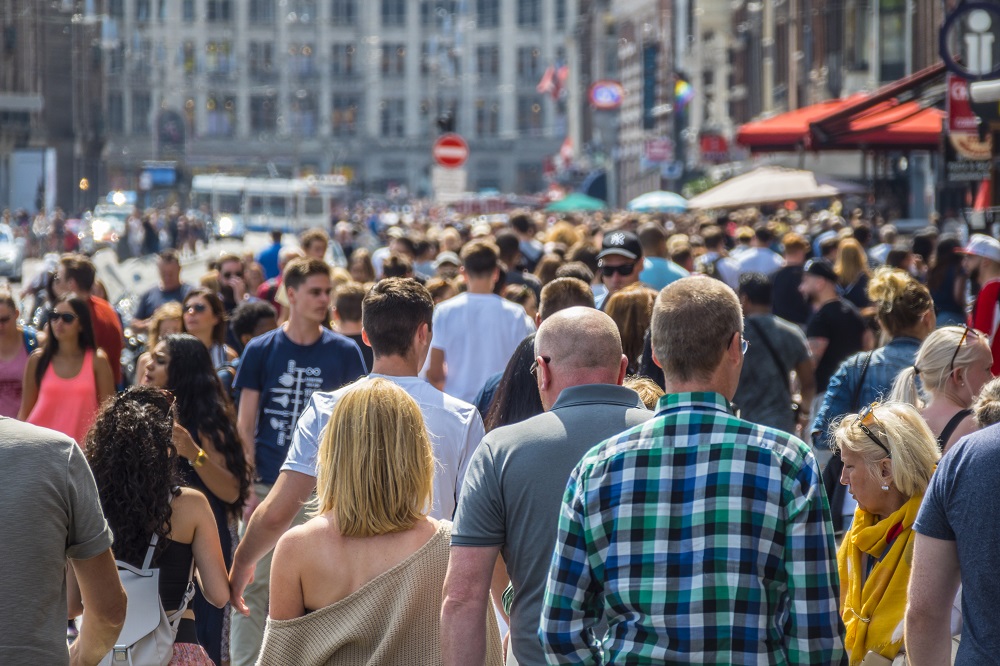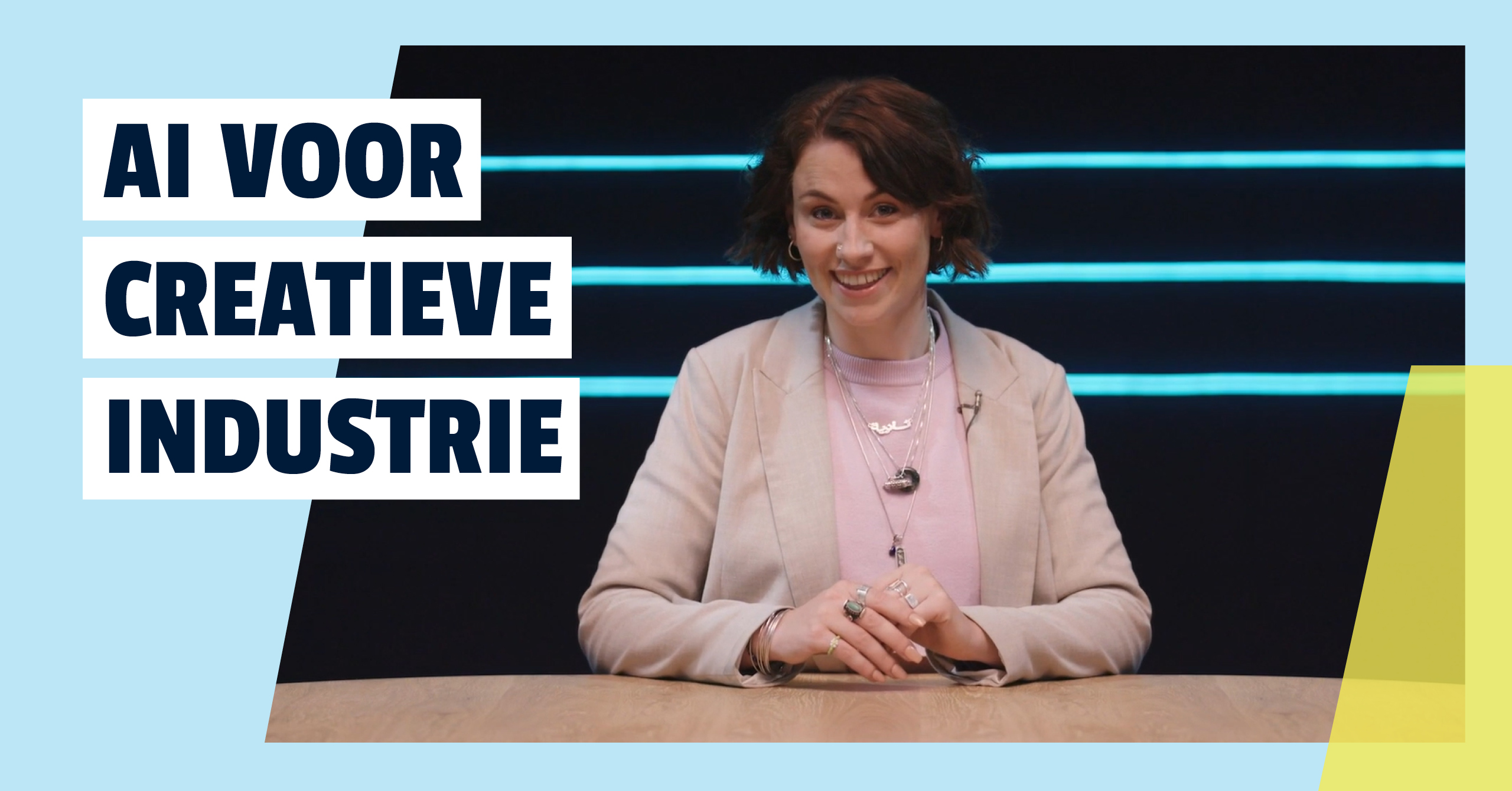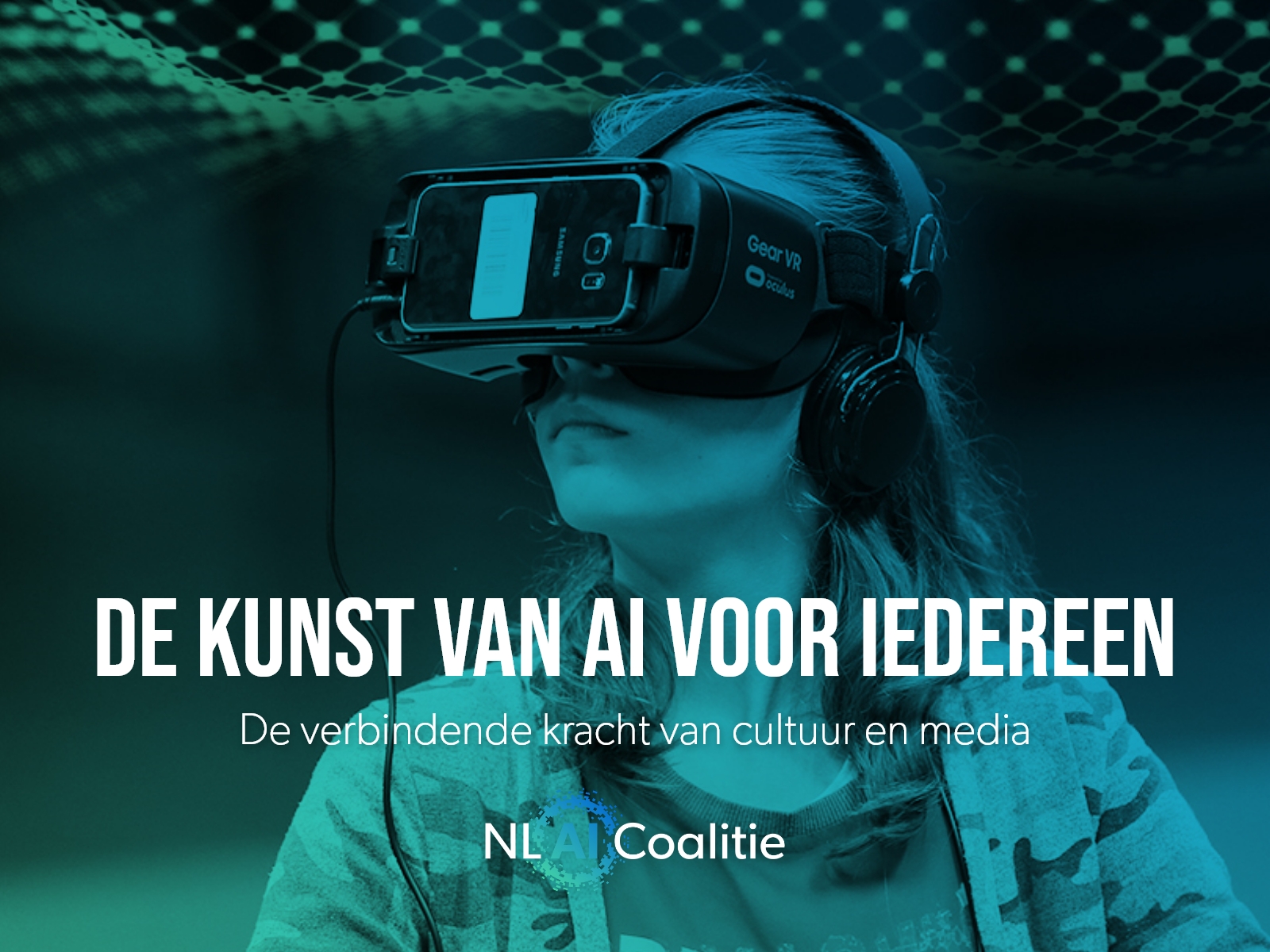AI is technology that is already having a significant impact on our everyday lives, and that impact will only increase. In fact, the Scientific Council for Government Policy deems it to be “a new systems technology that will change society significantly”. This shows how important the use of AI in culture and media is, because those are often the sectors that do the pioneering explorations. They ask critical questions. And creative thought experiments happen in those arenas that can lead to new understandings. Within that process, cultural and media expressions are aimed at various target groups. Distribution is handled through a range of channels, from television programmes and new media to exhibitions, debates and concerts. Thanks to that mix of target groups and channels, it becomes possible to involve all of the Netherlands in the ongoing debate about AI and the desired role of AI applications in society here.
Opportunities
There are various opportunities for using AI within the cultural and media sectors. To mention just a few of the various options:
- Analysing heritage collections on large scale in text, images and sound, to discover trends that can help investigate social issues.
- Making culture more inclusive, for example for people with physical limitations or by providing access for more elderly groups in society, or similar efforts.
- Supporting journalists by making it easier to search data and by facilitating investigative journalism (fact checking).
- Using physical and virtual ‘robots’ that give the public access to media and culture through chatbots, spoken conversations, as museum guides or in a game setting.
- Designing ultra-personalised forms of presentation that enhance the experience, for example by using AI to create a dance performance tailored to the user experience based on previously recorded dance rehearsals.
So, where can this take place? First of all: online. Digital distribution channels offer a nice opportunity to introduce a broader audience to AI capabilities in an attractive way and to make them think about how utilising that technology can be made responsible and human-centric. The role still played by traditional media channels such as newspapers and television should not be underestimated. It would also be good to draw attention to the opportunities and challenges presented by AI in the public sphere. Libraries and museums are good locations for encouraging social discourse on the topic with the public.
Working group aims for a common AI strategy
Given that AI will have a significant impact on our future society, the Culture and Media working group is making the case for a common AI strategy for both the cultural sector and the media sector. The working group is aiming for an ecosystem that is a balanced reflection of society. In addition to cultural organisations and media companies, it is important to involve public organisations, centres of expertise, businesses and the residents of the Netherlands.
More information
What are key points to keep in mind when using AI in culture and the media? Where is that technology already being used successfully? What potential do AI applications have? And what is required to make all culture and media organisations AI-ready? The answers to this type of question can be read in the position paper written by the working group, ‘The Art of AI for All: The binding strength of culture and media’. The goal of that publication is to promote innovations for AI in the culture and media sector in the Netherlands.
If you’re interested in this topic and would like to be actively involved, you can become a participant of the NL AIC and benefit from our Culture and Media expertise and network, and other relevant AI themes.






